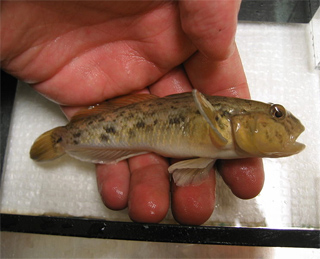Critter “Love Triangle” Creates Poison System in Lake Michigan
By JoshMogerman in News on Nov 28, 2010 8:00PM
Something is killing birds in Michigan. Lots and lots of them. A new theory explaining the thousands of carcasses washing up on beaches on the state’s Upper Peninsula points the finger at botulism. Nope, not from discarded dented cans or tainted spinach. Researchers think this might be another weird example of the havoc being wreaked in Great Lakes waters by the invasive quagga mussel.
The Trib’s Joel Hood takes a break from the Asian carp beat to look into the latest concern about the impacts brought on by the tiny bivalves that are taking over Lake Michigan, where they represent up to 90% of all the living creatures in some areas. In the case of the bird deaths, quagga mussels unwittingly take out our fine feathered friends with the help of an intermediary species. The mussels’ tireless filter feeding seems to absorb naturally occurring botulism from the water. That toxin is metabolized by round gobies, another invasive species that eats the mussels. The gobies have become one of the most common fish in the Lake since their introduction and are eaten by birds in huge quantities. Every year thousands of Lake fliers may be falling victim to this unnatural botulism delivery system, though researchers do not yet know the particulars of how exactly the process works.
This is just the most recent example of the harrowing impact the mussels are having on Lake Michigan. The quadrillion quaggas in the Lake are blamed for making fundamental changes to the ecosystem by sucking out the plankton that is the base of the food chain, which starves out other species and allows algae to grow in the Lake bed. Recent satellite photos actually chart the destruction from year-to-year by documenting the disappearance of the Lake Michigan “donut”---a massive ring of plankton, visible from space, that blooms annually in the late winter and has been on the wane since the mussels’ population explosion. These impacts have researchers scrambling and are beginning to give the species the notoriety it likely deserves. Quaggas won the Great Lakes Echo's "Great Lakes Smack Down," an invasive species popularity contest, beating out such notable critters as the sea lamprey, alewives, and the more famous zebra mussels.
